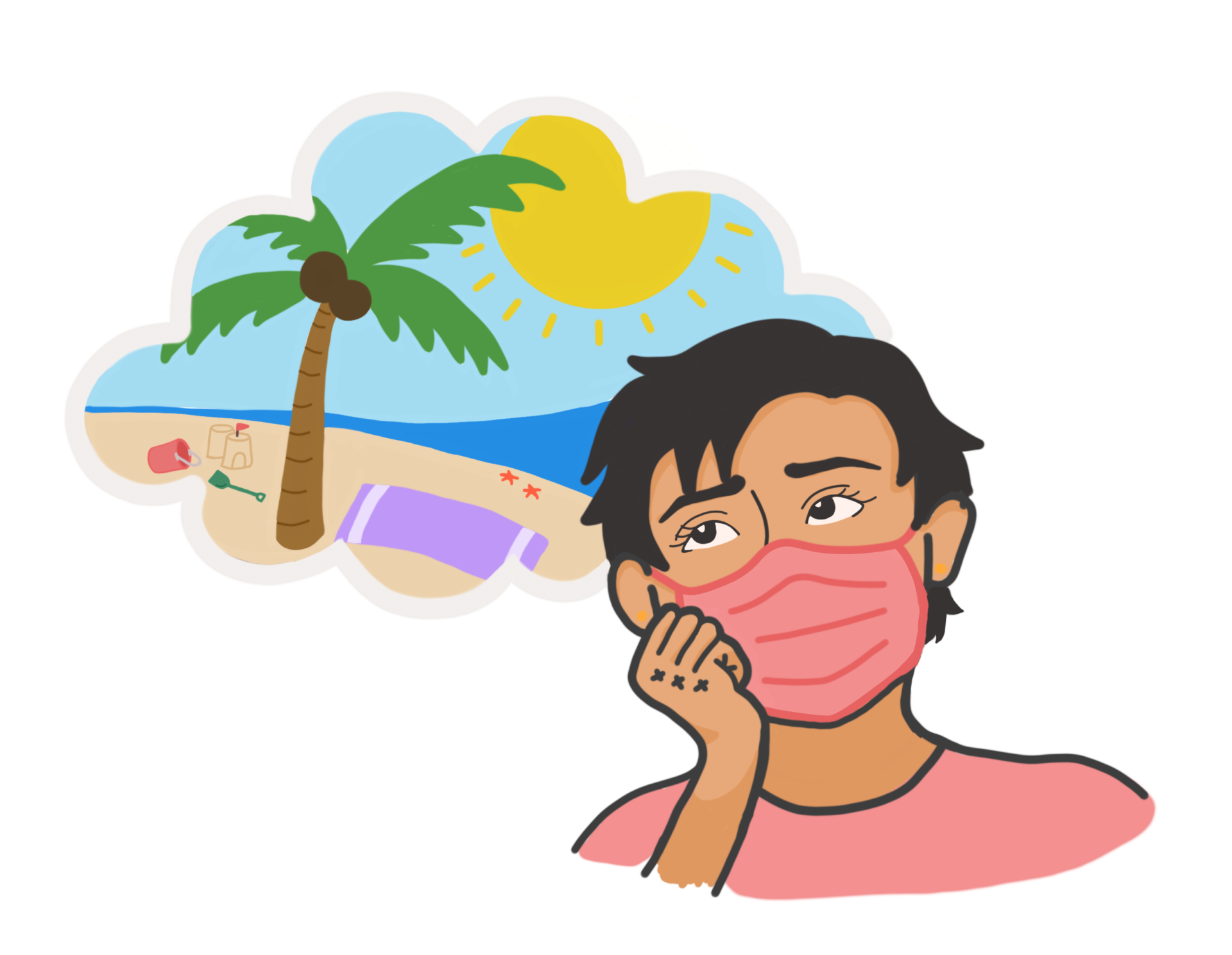
Moving into the spring of 2021, this year seems to be another year of communal strife. I, for one, was a wide-eyed 19-year-old when news of the first case of COVID-19 swept throughout the United States. “Only two weeks of quarantine,” they said. “We have this under control,” they said. Now, in the middle of March, I am just days from my 21st birthday. This pandemic is still ravaging the United States, and the resulting mental health crisis of unprecedented scale has affected millions, with college students among the most affected, according to the Centers for Disease Control and Prevention. Students have looked to spring break as an escape from the daily stress of academic life for decades. But now, with the long weekend approach adopted by Lewis & Clark during the pandemic in an attempt to reduce student travel and keep the campus bubble intact, that escape has been made all but a pre-pandemic relic.
The stress of this academic year is unlike anything most of us have ever experienced. Coursework seems to be of a much greater quantity, while motivation and mental health are at all-time lows. Naturally, I was looking forward to the break. But myself, most of my friends and my classmates had spent the entire long weekend during late February catching up on homework and working on assignments due shortly after the break. Some even spent it stressed in their dorm rooms, studying for midterms. The reason that academic breaks exist is for students and staff to have a prolonged escape from school, an escape from the endless pages of reading and writing, a time for self-care and to recharge for the last push towards finals. Where has that gone this year, a year when we need it the most?
Furthermore, the stress and frustration we all have been feeling was exacerbated by the historic ice storm that crippled Portland in late February. The college was quick to support students when power was out on campus, but that ceased almost immediately after campus power was restored.
Students, staff and faculty who live off campus had no choice but to attend class. Some crammed into Templeton Campus Center to find WiFi and charge devices, or even finish assignments through continued power outages, damage to their homes and cars, and unsafe travel conditions. Some professors who had been teaching remotely from home all year due to the pandemic even had to make the dangerous trip to their offices for class. Given the nature of the shortened breaks, students and staff were not given adequate time to recover and refocus.
In regards to these shorter breaks during the COVID-19 era, students around the country are also at odds with another dilemma. We can either minimize risk and prioritize community safety — accepting another year of social, academic and physical isolation — or take risks that could have dangerous implications on travel and quality time with family and friends in an attempt to find some semblance of normalcy amidst the chaos. Either way, there are stark ramifications.
The motive for not proceeding with a normal week-long spring break this year was clearly to minimize unsanctioned student travel off campus. But while this sounds great in theory, compliance and enforcement are entirely different ball games. The number of students who traveled, either sanctioned or unsanctioned, during the long weekend in late February was significant. Many students who had already chosen to take these risks were never going to be deterred from traveling home or elsewhere, as they had been permitted to during the massive surge in COVID-19 cases and deaths at the height of the pandemic during winter break.
Furthermore, the full forces of LC’s testing and contract-tracing apparatuses were deployed as students returned from winter break in January. But after all of the travel that took place during the first long weekend in February, the same COVID-19 mitigation procedures were far less apparent.
Luckily, all hope for a real break is not lost. This next weekend is another four-day break, and this time I hope it actually feels like a break. Professors, this is a chance for you to put your students first and to understand and sympathize with the struggles all of us have faced this year. Students, make the conscious effort to get those extra few hours of sleep, watch some Netflix or relax and destress in the presence of your pod. Administrators, continue to synchronize your actions with your words. Put yourselves in the shoes of students, faculty and staff and ask yourselves the question, “What would I want my four-day break to be like?” We are in this together. Afford us the tools we need to take care of each other and ourselves.
This article presents opinions held by the author, not those of The Pioneer Log, its editorial board or those interviewed for background information.
Subscribe to the Mossy Log Newsletter
Stay up to date with the goings-on at Lewis & Clark! Get the top stories or your favorite section delivered to your inbox whenever we release a new issue.

Leave a Reply